Health
Uganda becomes second country, after Nepal, to unveil Climate Health Adaptation Plan
Published
10 months agoon
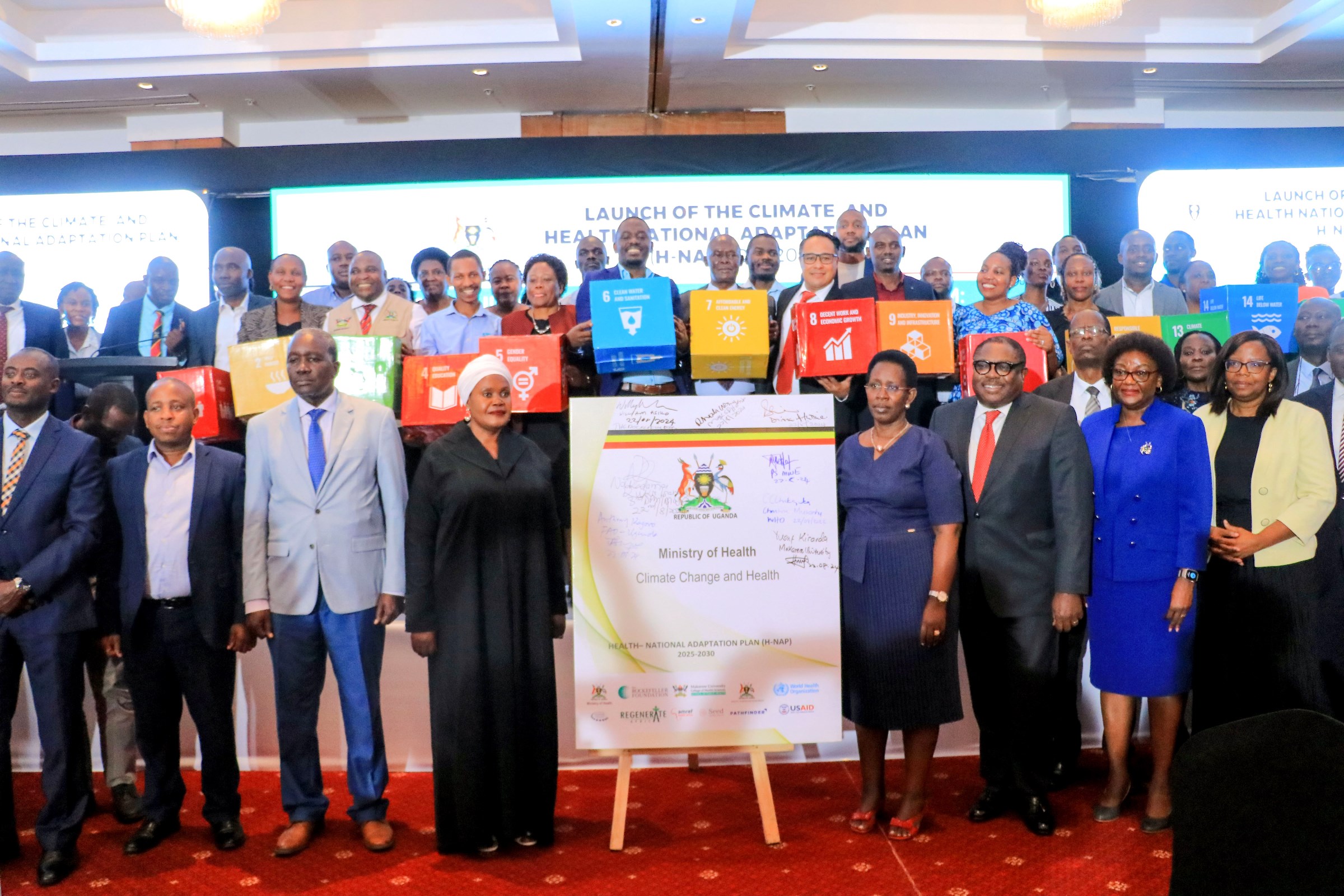
Kampala, 24 August 2024 – Uganda’s Ministry of Health on Thursday August 22nd launched its Climate Change Health National Adaptation Plan (H-NAP), a comprehensive strategy aimed at bolstering the nation’s health system resilience against the impacts of climate change.
Adapting to climate change presents a substantial financial burden, with Africa projected to need up to $2.8 trillion by 2030 to fulfill its commitments under the Paris Agreement, according to the African Development Bank.
Uganda’s Health National Adaptation Plan (H-NAP), a critical step in this effort, requires an estimated $63 million by 2030.
Unveiled at Sheraton Hotel in Kampala by Third Deputy Prime Minister Hon. Rukia Isanga Nakadama, the H-NAP marks a milestone in Uganda’s response to the escalating climate crisis, particularly within the health sector. This ambitious plan underscores the urgent need to address climate-related health challenges and strengthen the country’s resilience.
Uganda has committed to addressing climate change as a signatory to key global agreements, including the UNFCCC, Paris Agreement, and Kyoto Protocol. In line with these frameworks, the Ugandan government has established supportive policies and laws, such as the National Climate Change Policy (2015), the Climate Change Act (2021), the Nationally Determined Contributions (2022), and Vision 2040.
Rt. Hon. Rukia Nakadama congratulated the Minister of Health and partners for developing the Climate Change Health National Adaptation Plan. She affirmed that the government would integrate climate resilience into the Parish Development Model, Uganda’s strategy for improving household incomes and welfare. The PDM focuses on multi-sectoral community development and addresses key aspects of livelihood enhancement, including human, natural, social, financial, and physical resources.
“In the Parish Development Model there is a need to integrate Climate change interventions. In addition, the National Development Plan III and the newly developed National Development Plan IV highlights Climate change as a cross-cutting issue requiring mainstreaming for all sectors,” said Rt. Hon. Nakadama.
Drawing on the latest climate science and projections, Uganda’s health sector adaptation plan pinpoints critical areas where enhancing resilience is urgent, with the goal of strengthening the adaptive capacity of the health system to climate change and related hazards.
“It is moments like this that make me optimistic and excited about a healthier future. We have gathered at a transformational moment in unprecedented times. I am sure all of you have seen and felt the effects of our changing world. Unpredictable weather events have brought both droughts and extreme flooding as you have heard. Outbreaks of cholera, malaria, yellow fever, measles, and more have become increasingly common,” said William Asiko, The Rockefeller Foundation Vice President for Africa.
Asiko noted that climate change is now the greatest threat of health and wellbeing of billions of people worldwide and that to meet that threat head-on, human beings must “innovate,” “rethink,” and “adapt our health systems from the threats.”
Rebuilding systems is a huge task, especially when lives are at stake, said Asiko, before adding that overcoming these obstacles has been The Rockefeller Foundation’s mission for over a century. “The fight for global health, has always been at the health of our work,” he stated.
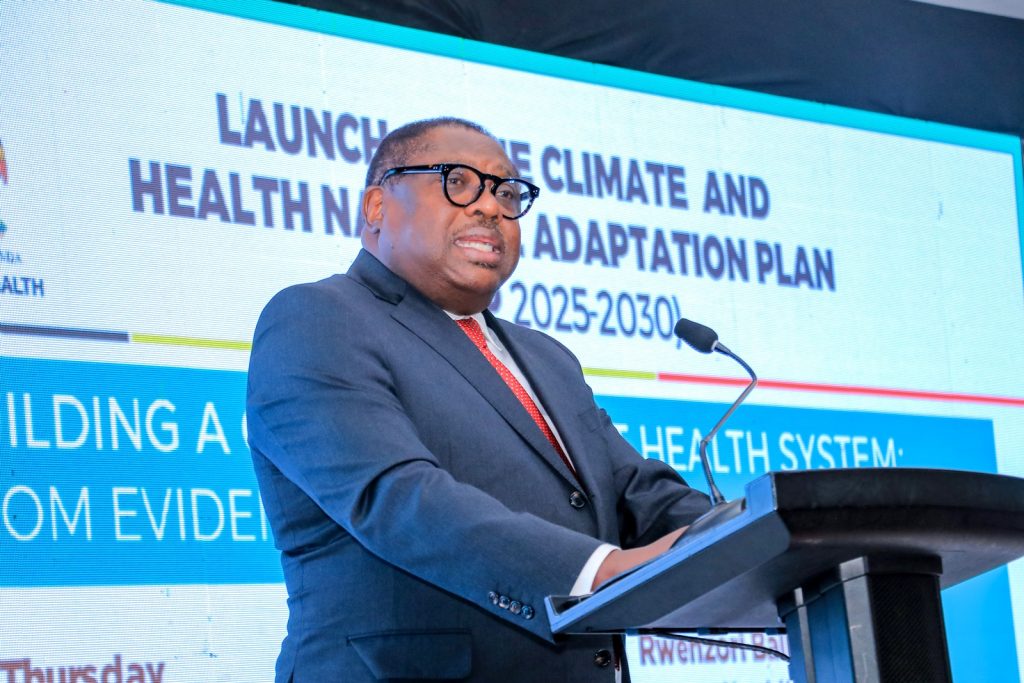
The 2022 report on climate change from the United Nations noted that at least 3.3 billion people’s daily lives are “highly vulnerable” to climate change, and people are 15 times more likely to die from extreme weather than in years past, the Intergovernmental Panel on Climate Change (IPCC) report said.
Uganda’s Ministry of Health data show that malaria remains the leading cause of illness among pregnant women and children under five. Uganda also faces critical challenges, with 81% of the population lacking access to safe water, and only 35% having basic sanitation. This results in approximately 19,700 child deaths annually due to diarrheal diseases—equivalent to 54 children that die every day from poor sanitation.
Malnutrition further contributes to infant and child deaths, with 12% of infants born underweight. Adding to this burden are pollution-related deaths; in 2021 alone, over 1,000 people in Kampala died due to poor air quality, this is according to a scientific publication by researchers at the Makerere University School of Public Health (MakSPH).
The World Health Organisation (WHO) estimates that more than 13 million deaths worldwide, each year are due to preventable environmental causes. Just to mention that air pollution from fossil fuels alone, kills 13 people every minute from lung cancer, heart disease or stroke.
These alarming statistics underscore the urgent need for Uganda’s Health National Adaptation Plan (H-NAP) to address these interconnected challenges and build a more resilient health system.
Dr Christine Musanhu, the Acting WHO Representative in Uganda contends that; “We urgently need to take concrete and timely measures, to protect the health of our populations and build a resilient future.”
According to Dr. Musanhu, climate change is not just an environmental issue; but a profound threat to the health, well-being, and development of mankind.
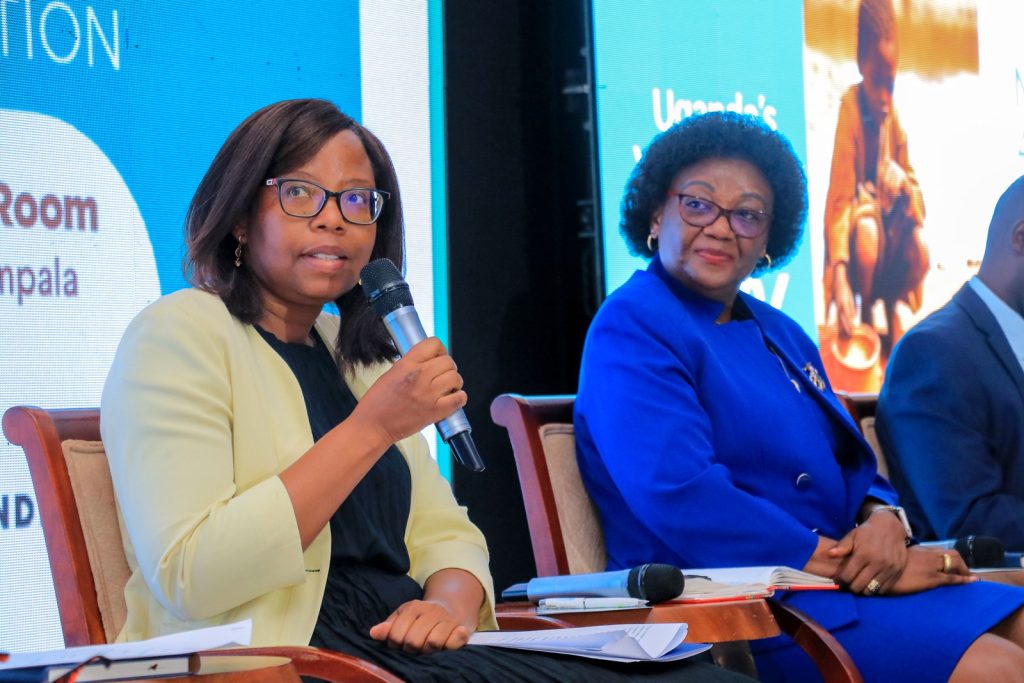
“Our actions today, will have a long-term effect on protecting future generations from the health consequences of climate change. In collaboration with the Ugandan government, I therefore call upon all partners, to mobilize efforts to join our quest to protect the environment,” she said.
Following numerous disasters globally, WHO has been at the forefront of efforts, to build climate change-resilient health systems. Some of the key, WHO-supported global developments in this area include the: WHO Climate Resilient Health Systems Framework, a comprehensive framework, to guide countries in making their health systems resilient, to the impacts of climate change.
The Uganda’s H-NAP covers ten components based on the WHO framework aimed at building a climate resilient low-carbon health system which is capable of anticipating, responding to, coping with, recovering from. and adapting to climate-related shocks and stress, while minimising the greenhouse gas emissions and other negative environmental impacts to deliver quality care and protect the health and well-being of present and future generations of Uganda.
Professor Barnabas Nawangwe, the Vice Chancellor Makerere University called for determination and solidary in implementing the H-NAP to safeguard the population and generations to come against the uncertainties of climate change.
“The success of the National Adaptation Plan depends on the strength of our collaborations. It requires the concerted efforts of government ministries, health agencies, civil society organisations, the private sector, and the academic community. I wish to reiterate Makerere University’s commitment to being a key partner in this endeavor,” said Professor Nawangwe.
Hon. Dr. Jane Ruth Aceng, Minister of Health of the Republic of Uganda said; “moving forward, any infrastructure projects in the health sector will be made to withstand the impact of climate change. In addition, Uganda will move forward to address the issue of greenhouse gas emissions by introducing solar lighting and solar refrigeration where applicable.”
On his part, Mr. Alfred Okot Okidi, the Permanent Secretary in the Ministry of Water and Environment, says as a ministry mandated to coordinate climate change related issues in Uganda, they assess sector budgets to ensure they are climate smart. He noted communities must be protected from the dangers of climate change. He also called on citizens to play their roles in ensuring they mitigate climate change risks.
“We have been encouraging our population to take care of their individual responsibilities. This is not just a government responsibility but a responsibility for everyone. Climate change affects us irrespective of where we come from, our department etc. I want to applaud the Ministry of Health for coming up with this H-NAP because health is one of those components that had not been taken seriously at the global level in respect to climate change,” said Mr. Okidi.
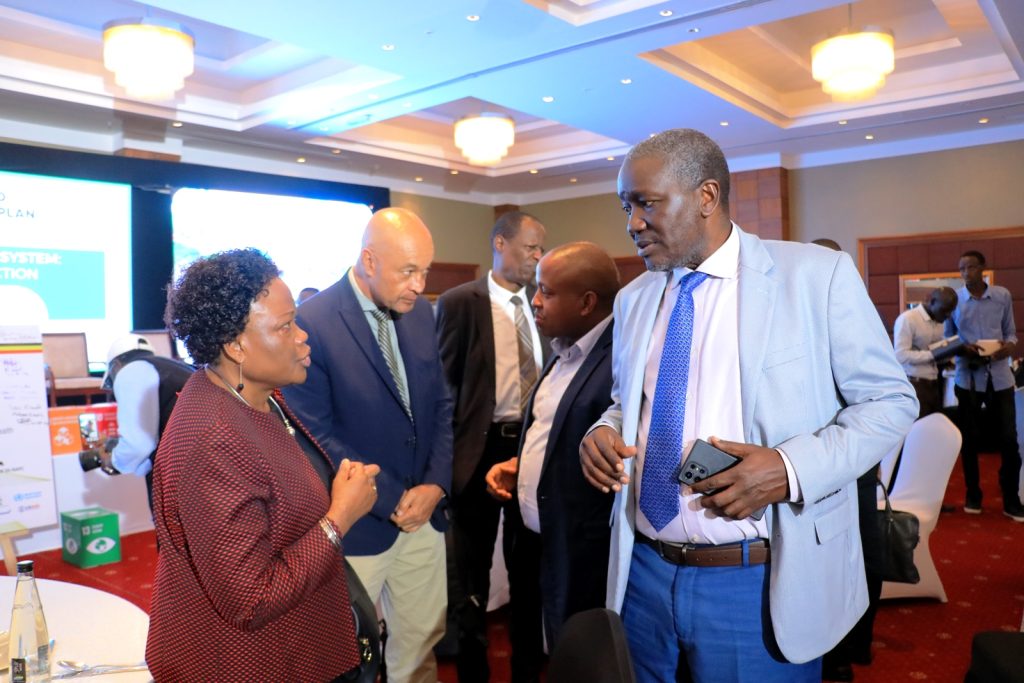
On her part, Dr. Rhoda Wanyenze, a Professor and Dean, MakSPH said the School and Makerere University as whole will be working around research, teaching and partnering with various institutions to provide required evidence especially around supporting Uganda to be able to comfortably predict climatic issues, to ensure quality decisions.
Uganda’s National Climate Change Action Plan (2030) show that all sectors of the economy are vulnerable to climate change effects.
Mrs. Margaret Mwebesa Othieno, the Commissioner of Climate Change at the Ministry of Water and Environment said she was happy to have the Ministry of Health coming on board.
“We are very happy to see that sectors are coming on board. I would also like to say that Uganda is the second country to have the Health -National Adaptation Plan after Nepal. So, to us, this huge and I would like to congratulate the Ministry of Health and all other partners that have supported these efforts. Climate change is everybody’s business. We shouldn’t leave it only to a few sectors,” said Mrs. Othieno Mwebesa.
On behalf of the Government of Uganda, Rt. Hon. Nakadama urged all the Development Partners and stakeholders to continue supporting the implementation of the Climate Health National Adaptation Plan both at national and sub-national levels. She committed that her office would spearhead the mobilisation of the population towards climate resilient systems.
“The Office of The Prime Minister will coordinate the multisectoral engagements for Ministries, Departments and Agencies (MDAs) and also create awareness of the Climate Change Health Adaptation Plan,” said Rt. Hon. Nakadama.
You may like
-


Emorimor Calls for Makerere to Upgrade Parenting Course
-
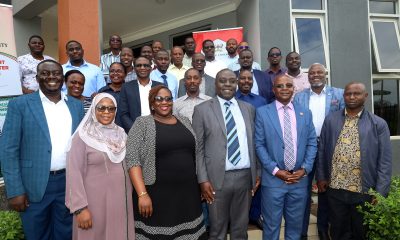

Uganda Deepens Economic Governance with Training on Regulatory Cost-Benefit Analysis
-
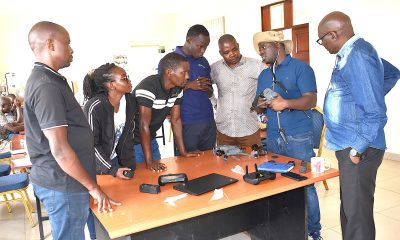

NbS4Tea Project Team Makes Great Progress, Deploys Drones for Data Collection
-


UVCF Makes Case for HEAC Programme
-


Mastercard Foundation Board pays its inaugural visit to Makerere University
-
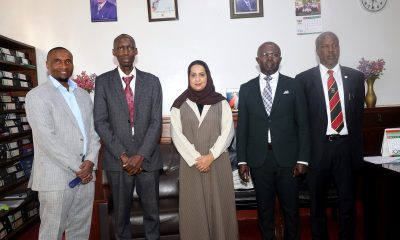

Mak CEES discusses partnership with King Salman Global Academy for the Arabic Language
Health
Emorimor Calls for Makerere to Upgrade Parenting Course
Published
2 days agoon
June 30, 2025By
Zaam Ssali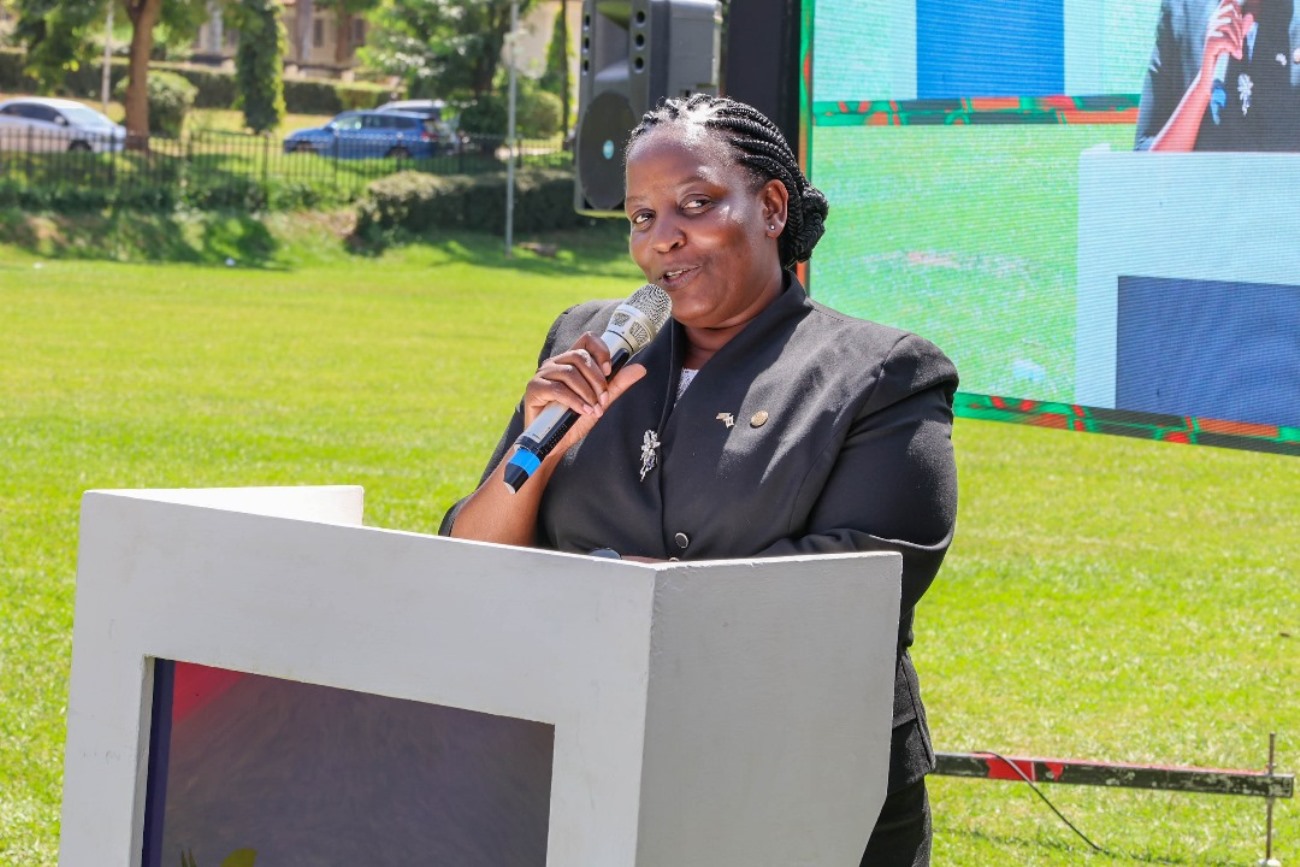
The Iteso Cultural Leader, His Highness Emorimor Papa Paul Sande Emolot, has called on Makerere University to elevate the Science of Designing, Adaptation, and Implementation of Evidence-Based Parenting Interventions course into a fully-fledged programme. This, he argued, would strengthen the capacity of practitioners implementing parenting interventions across Uganda.
Speaking at a graduation ceremony held on 11th June 2025 at Makerere University where 35 practitioners completed the 12-week course, Emorimor Papa Emolot emphasized the transformative power of effective parenting. He urged aspiring parents and advocates of the Parenting for Respectability model to enroll in the course.
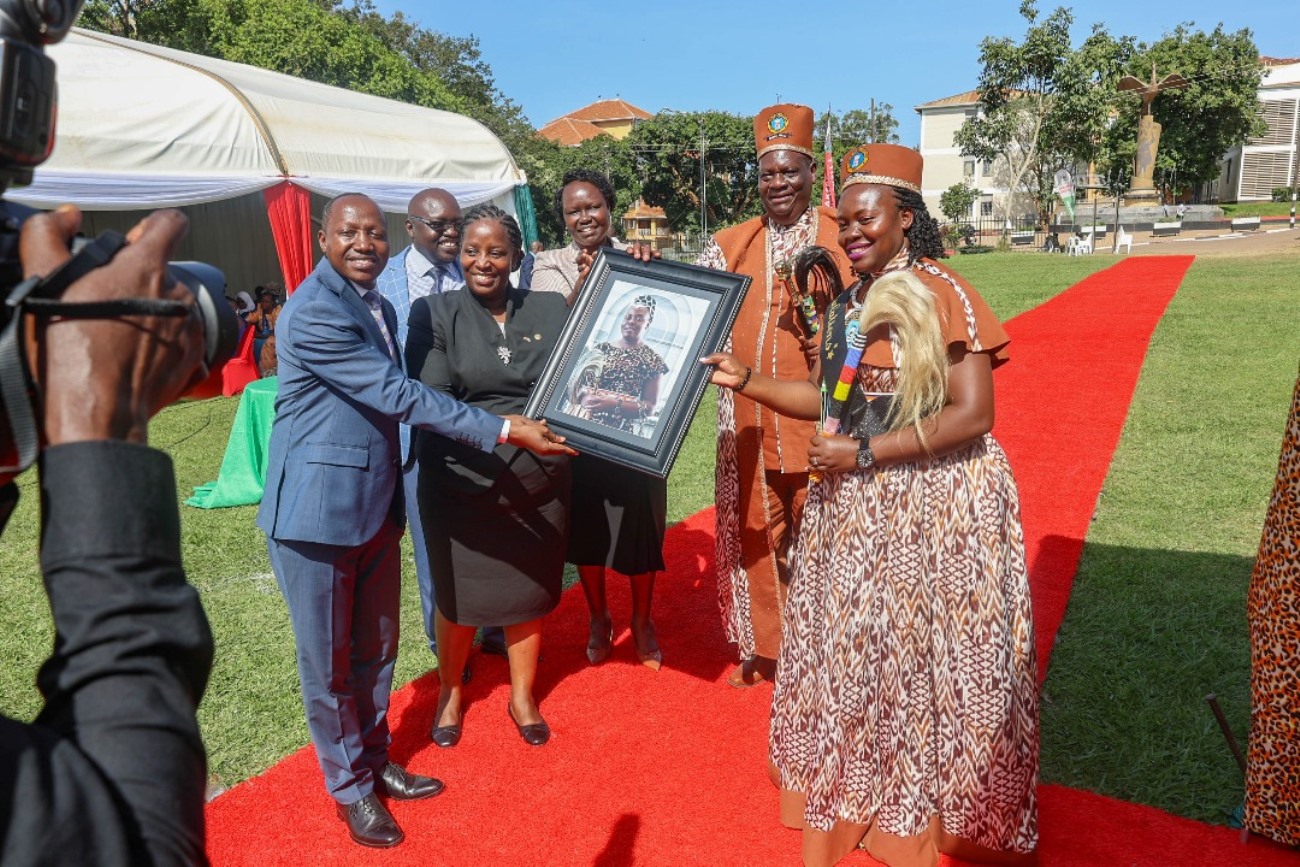
Citing the impact in his own sub-county and village, the cultural leader revealed that over 800 families had already benefited from the programme.
“We now see peace and love in homes where there was once conflict. Without good parenting, you risk raising animals instead of children,” he passionately stated.
He praised the course for equipping practitioners, policymakers, and researchers with the skills needed to design culturally sensitive, evidence-based parenting interventions tailored to Uganda’s context. Among the notable graduates was Her Royal Majesty Juliet Among Emolot Atomeileng Akaliat Toto, who reaffirmed her commitment to advancing family-strengthening initiatives using the skills and knowledge acquired.

Dr. Godfrey Siu, Senior Lecturer and Course Leader at Makerere University, described the course as a timely intervention. During this remarks, Dr. Siu described the event as a significant milestone in advancing the field of evidence based parenting intervention and family strengthening in Uganda.
“This course is meant to empower you as practitioners, policy makers and all those involved in development and implementation of parenting work. It provides both theoretical knowledge and practical tools essential for developing high quality interventions”, Dr. Siu noted. He urged the pioneer group to carry forward the expertise as champions of designing, adaptation and implementation of evidence parenting interventions.
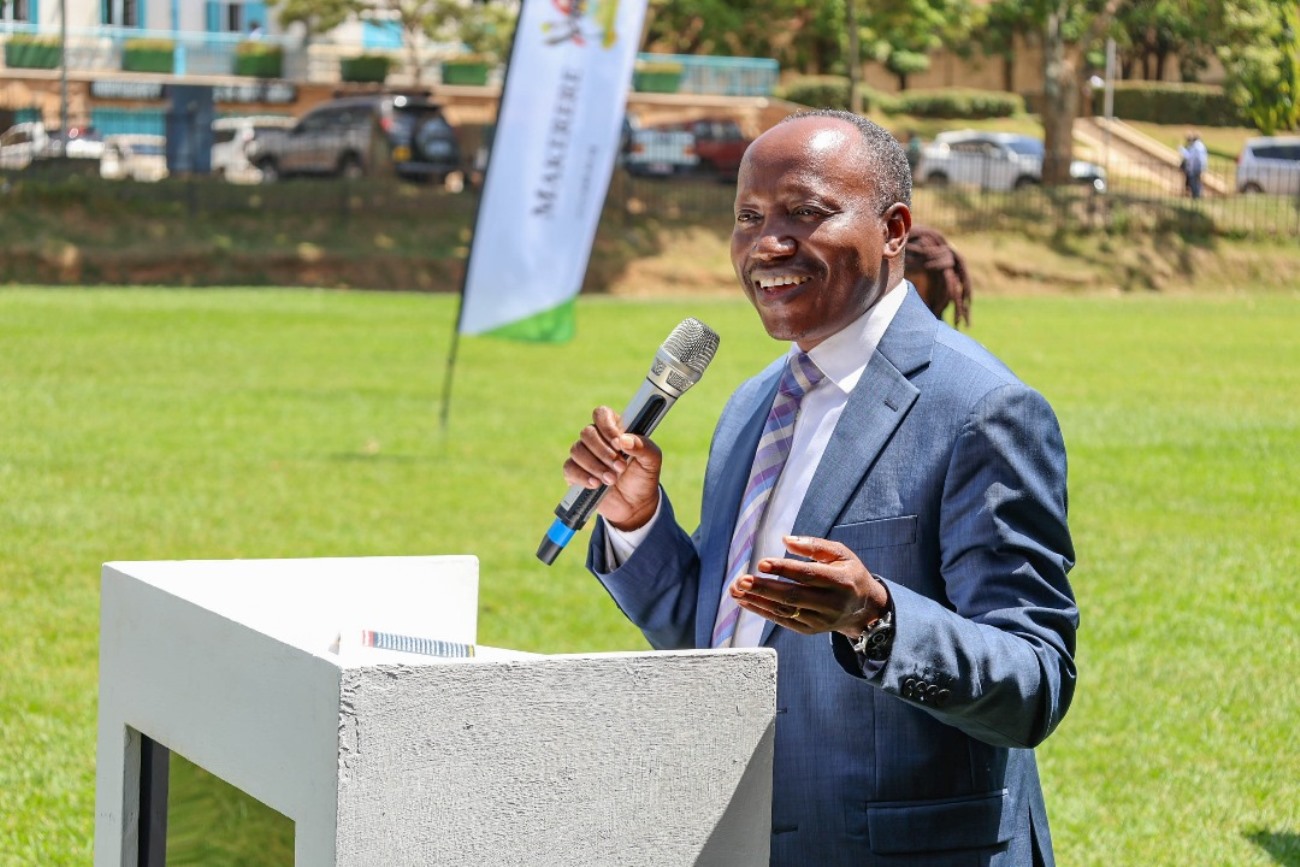
Representing the Permanent Secretary of the Ministry of Gender, Labour and Social Development, Dr. Aggrey David Kibenge, Juliana Naumo, Commissioner for Culture and Family Affairs, said the course supports the government’s agenda to address negative social outcomes affecting families.
“By grounding parenting in research, harmonizing policy with practice, and advocating for equity, we will ensure no family is left behind,” she said. “Cross-sectoral collaboration is key to unlocking transformative change.”
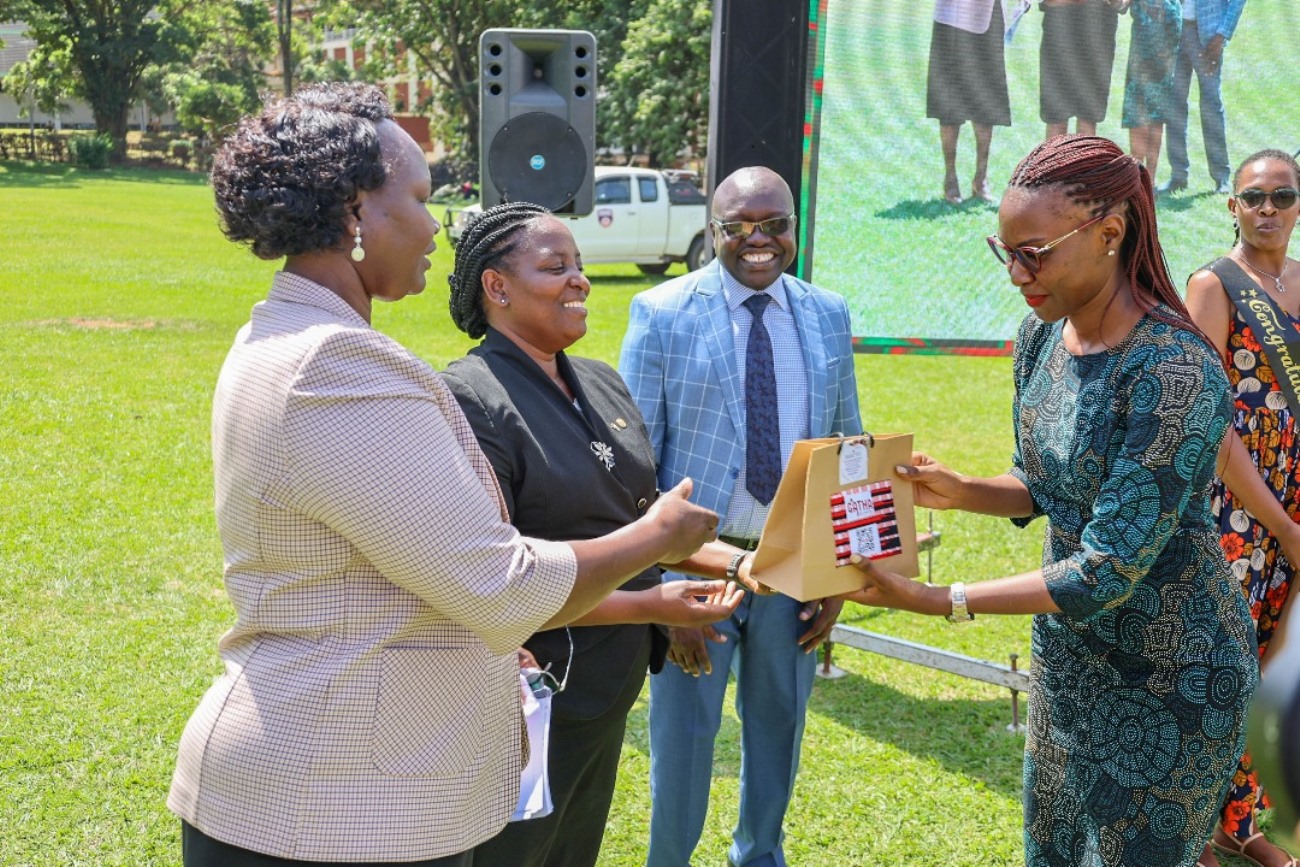
Ms. Naumo highlighted the government’s commitment—both technical and financial—to support outstanding student projects from the course. She stressed the importance of equipping professionals with the skills to bridge gaps between research and practice for consistent, high-quality parenting support across Uganda. While delivering the Vice chancellors speech by Dr. Helen Nambalirwa, Principal of the CHUSS, Prof. Barnabas Nawangwe commended the graduates as a beacon of hope.
“At a time when parenting faces challenges like digital distractions, changing societal norms, and a rising mental health crisis, Makerere reaffirms its support for interventions that drive the societal transformation we desire,” Nawangwe stated.
Prof. Richard Idro, Deputy Principal of the College of Health Sciences, acknowledged the growing parenting challenges in Uganda and the region, adding that the course was a major step towards standardizing parenting interventions nationwide.

He applauded the Child Health and Development Centre (CHDC) for leading this paramount and critical initiative.
Mr. Hosea Katende, Course Administrator at CHDC, emphasized the importance of integrating systematic methods, ethical principles, robust evidence, and collaboration to create lasting impact in parenting.
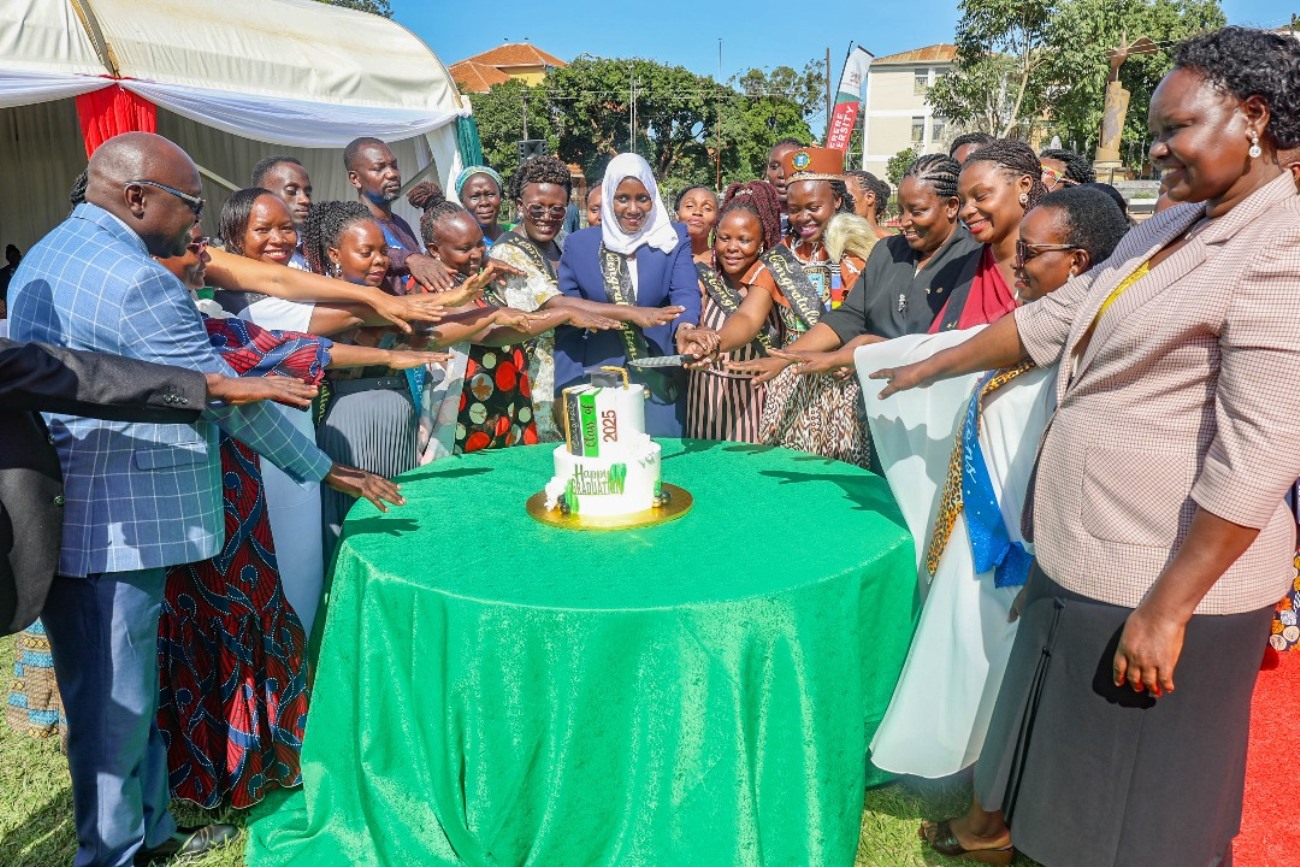
Dr. Aggrey Dhabangi, Lecturer at CHDC, representing Dr. Herbert Muyinda, Director of CHDC, acknowledged the contributions of partners such as the ELMA Foundation and Echidna Giving for their financial and capacity-building support. He also appreciated the Ministry of Gender, Labour and Social Development, among other stakeholders, for their technical guidance in the programme’s successful implementation.
Dr. Dhabangi extended gratitude to cultural institutions, especially the Kingdom of Teso, and acknowledged growing collaborations with other cultural institutions such as the Kingdom of Acholi, in the shared mission of building strong families as the foundation of Uganda’s future.

He extended his heartfelt gratitude to cultural institutions, especially the Kingdom of Teso, and others kingdoms such as the Kingdom of Acholi, in building Uganda’s future through creating strong families. Nuruh Mbalyowere, a Rehabilitation and Reintegration Officer with the Uganda Prisons Service, was honored for developing the best parenting intervention titled “Parenting Behind Prison Bars.” She expressed her intention to apply the knowledge gained both at home and in her workplace.
Health
MakSPH, DJC Launch Short Course on Health Communication
Published
2 weeks agoon
June 20, 2025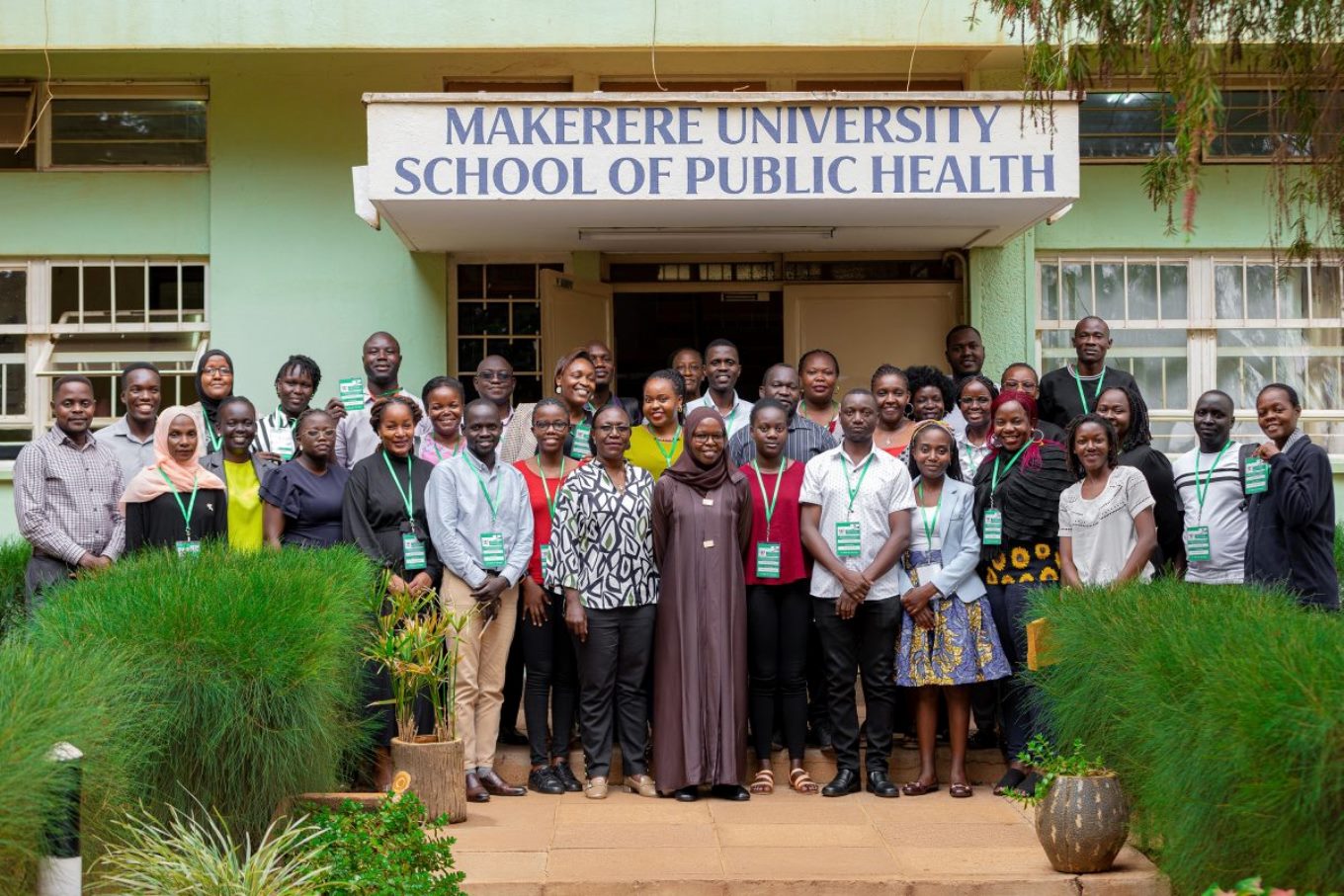
By Okeya John and Primrose Nabankema
The intensive one-month course, running for the first time from June 5 to July 24, 2025, is jointly offered by Makerere University School of Public Health (MakSPH)’s Department of Community Health and Behavioural Sciences (CHBS) and the Department of Journalism and Communication (DJC) at the School of Languages, Literature, and Communication (SLLC), co-designed in 2024 with support from the Rockefeller Foundation through Amref Health Africa.
It seeks to equip healthcare providers at the community level, public health and environmental health practitioners, communication specialists, health educators, community development officers, social scientists, and policy makers, among others, with strategic communication skills to improve public health messaging, strengthen community engagement, and support evidence-based interventions, ultimately empowering participants to effectively engage communities and improve population health outcomes across Uganda and the region.
Launching the course, the heads of the Department of Journalism and Communication and the Department of Community Health and Behavioural Sciences noted that participants who complete the short course will gain practical tools to influence behaviour change, build trust, and deliver timely, accurate, and relevant health information to the communities they serve. The first cohort attracted more than 60 applicants, with 36 reporting for the opening in-person session on June 5, 2025, at MakSPH in Mulago. Between now and July, participants will undergo a hands-on, multidisciplinary learning experience within the Certificate in Health Communication and Community Engagement program, which combines theory and practice.
Among the participants in the first cohort of the certificate course, designed as a pilot for the anticipated Master of Health Promotion and Communication to be jointly offered by the two departments at Makerere University, is Ms. Maureen Kisaakye, a medical laboratory technologist specialising in microbiology and antimicrobial resistance (AMR), and currently pursuing a Master’s in Immunology and Clinical Microbiology at Makerere. She is driven by a passion to help reverse the rising tide of AMR, a growing global health threat where drugs that once worked are no longer effective. Kisaakye is particularly concerned about common infections, like urinary tract infections, becoming increasingly resistant and harder to treat.
“I enrolled in this course because I’m an advocate against antimicrobial resistance, and it came at a time when I needed to deepen my knowledge on how to implement our projects more effectively and engage with communities. The experience has broadened my understanding of AMR and its impact on society, and strengthened my passion for community-driven health initiatives and advocacy,” Kisaakye said, explaining why she enrolled for the short course.
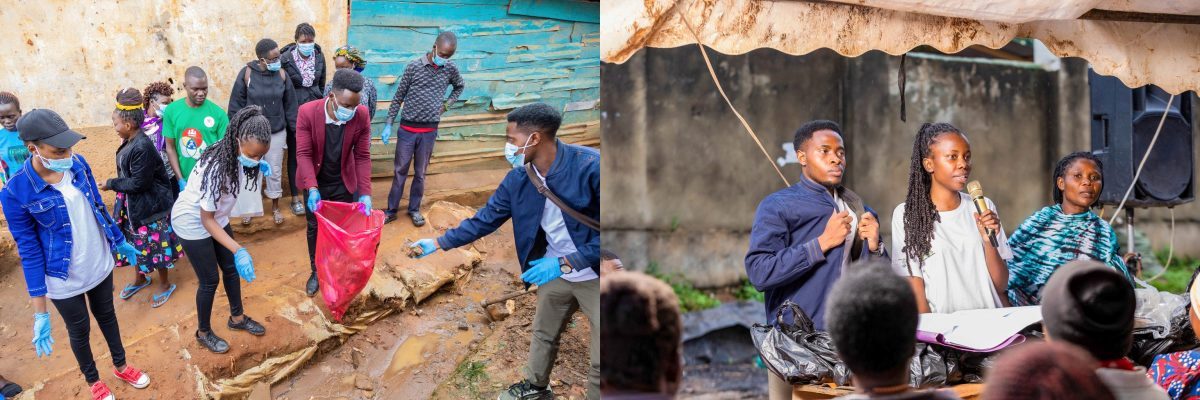
Kisaakye’s work in antimicrobial resistance extends beyond the lab. Having earned her degree in medical laboratory science from Mbarara University of Science and Technology, she founded Impala Tech Research in 2024 to drive impact and save lives. She has led grassroots AMR campaigns that integrate antimicrobial stewardship with water, sanitation, and hygiene (WASH) education in underserved urban communities, including the informal settlements in Kampala. She also has since designed peer-led initiatives that empower university students as AMR Champions, building a network of informed youth advocates. Kisaakye believes the health communication course will sharpen her ability to design and deliver impactful, community-centred interventions in response to the growing threat of drug resistance.
“The department collaborates with many partners within and beyond the University, including the School of Public Health, where we are working to develop the subfield of health communication and promotion. Our goal is to train specialists in this area and build a community of practice, something we have each been doing in our own spaces. There’s a lot of work ahead, and COVID-19 showed us just how urgently we need a generation trained to do this kind of work, and to do it very well,” said Dr. Aisha Nakiwala, Head of the Department of Journalism and Communication, during the opening of the short course on June 5.
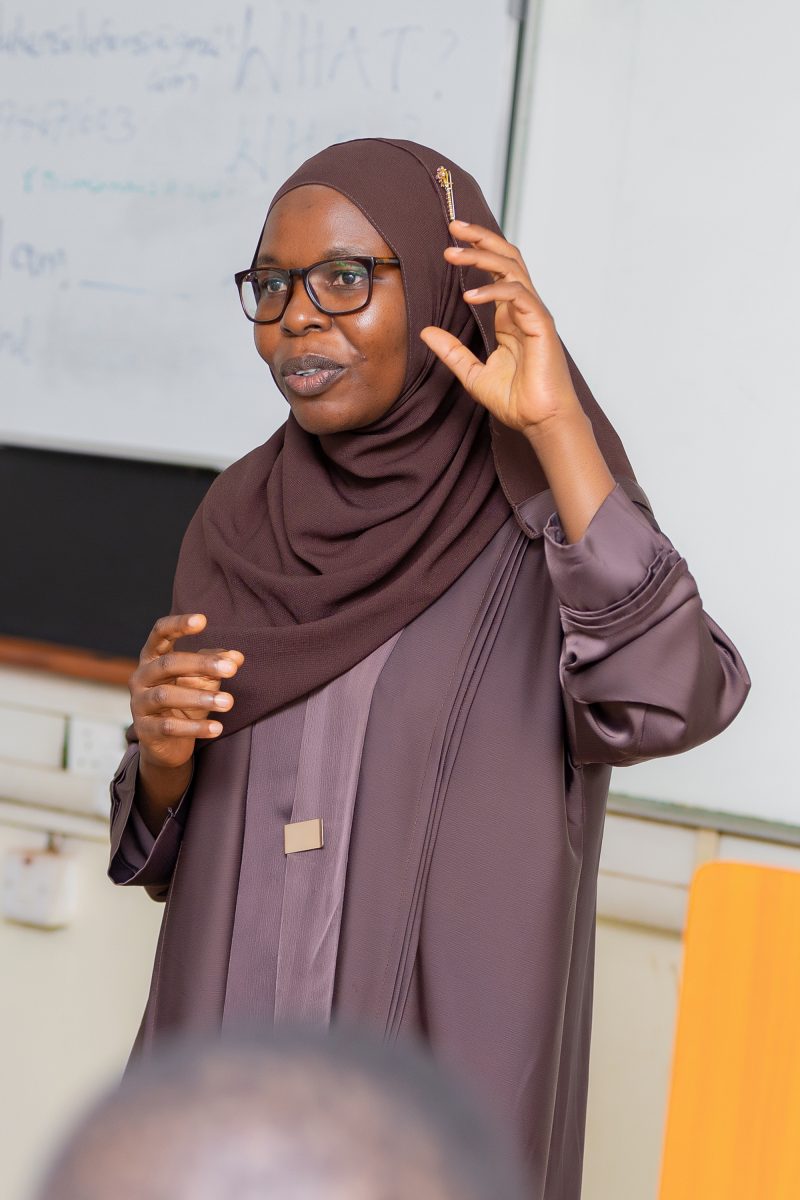
She assured participants they were in good hands and underscored the importance of the partnership between the Department of Journalism and Communication and the School of Public Health, describing it as a vital collaboration that brings together strategic communication and public health expertise. This dynamic, multidisciplinary approach, she noted, is essential to developing practical solutions that empower communities, strengthen health systems, and ultimately improve livelihoods.
The course offers a hands-on, multidisciplinary learning experience, with participants intended to explore key modules including Health Communication and Promotion, Risk Communication, Smart Advocacy, Community Mapping, Community Mobilisation and Empowerment, and Strategies for Community Engagement. The course combines theory with real-world application, and its assessment includes a field-based project and a final exam.
“You are our first cohort. We are seeing the fruits of our efforts in bringing this short course to life. It was born out of a joint initiative to develop a Master’s programme in Health Promotion and Communication,” said Dr. Christine Nalwadda, Head of the Department of Community Health and Behavioural Sciences. “We carried out extensive consultations with our different key stakeholders during the process and discovered a real need for such a course. It was the stakeholders who even named it; this course name didn’t come from us.”
For Kisaakye, by the end of the course in July, she hopes to have sharpened her skills in health promotion and strategic communication, particularly in crafting targeted messages that help individuals and communities effectively respond to threats such as antimicrobial resistance. She also aims to gain practical experience in designing, implementing, and evaluating community health initiatives that can strengthen her advocacy and drive lasting impact.
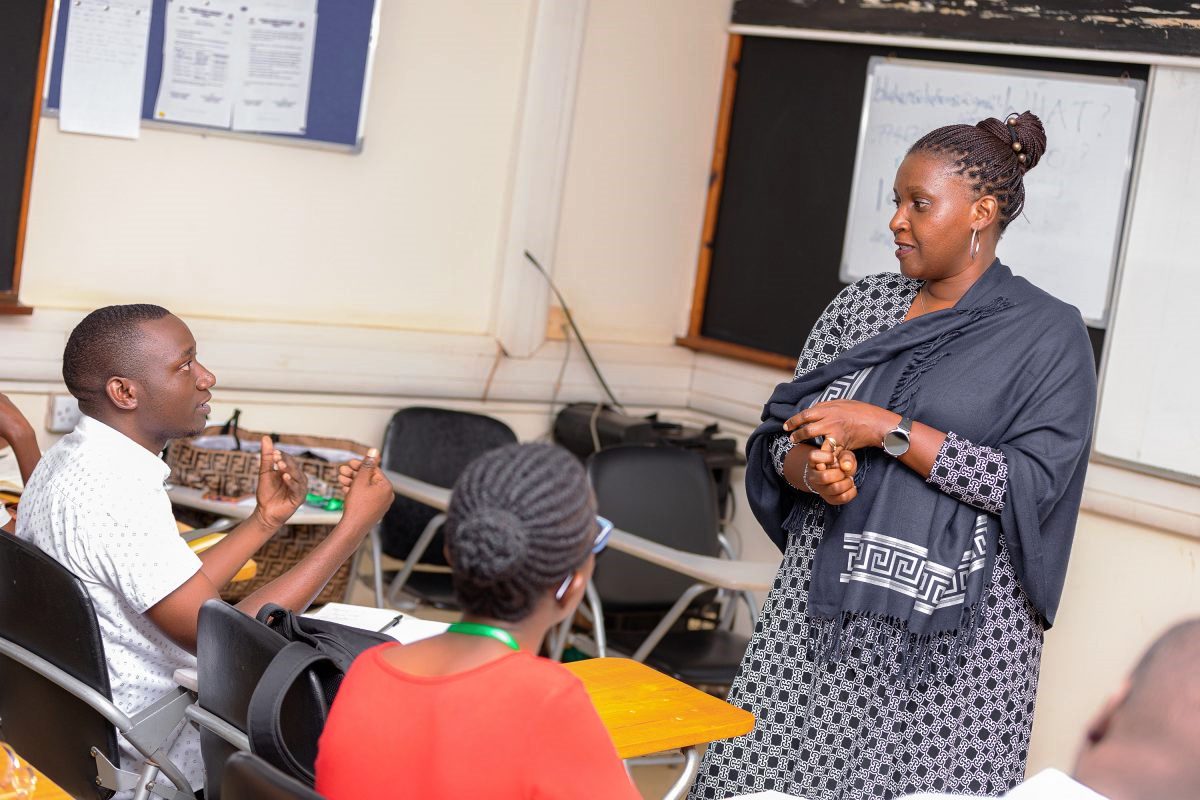
Health
Call for Abstracts: 2nd East African Symposium and Expo on Trauma, Injuries, and Emergency Care – 2025
Published
2 weeks agoon
June 19, 2025By
Mak Editor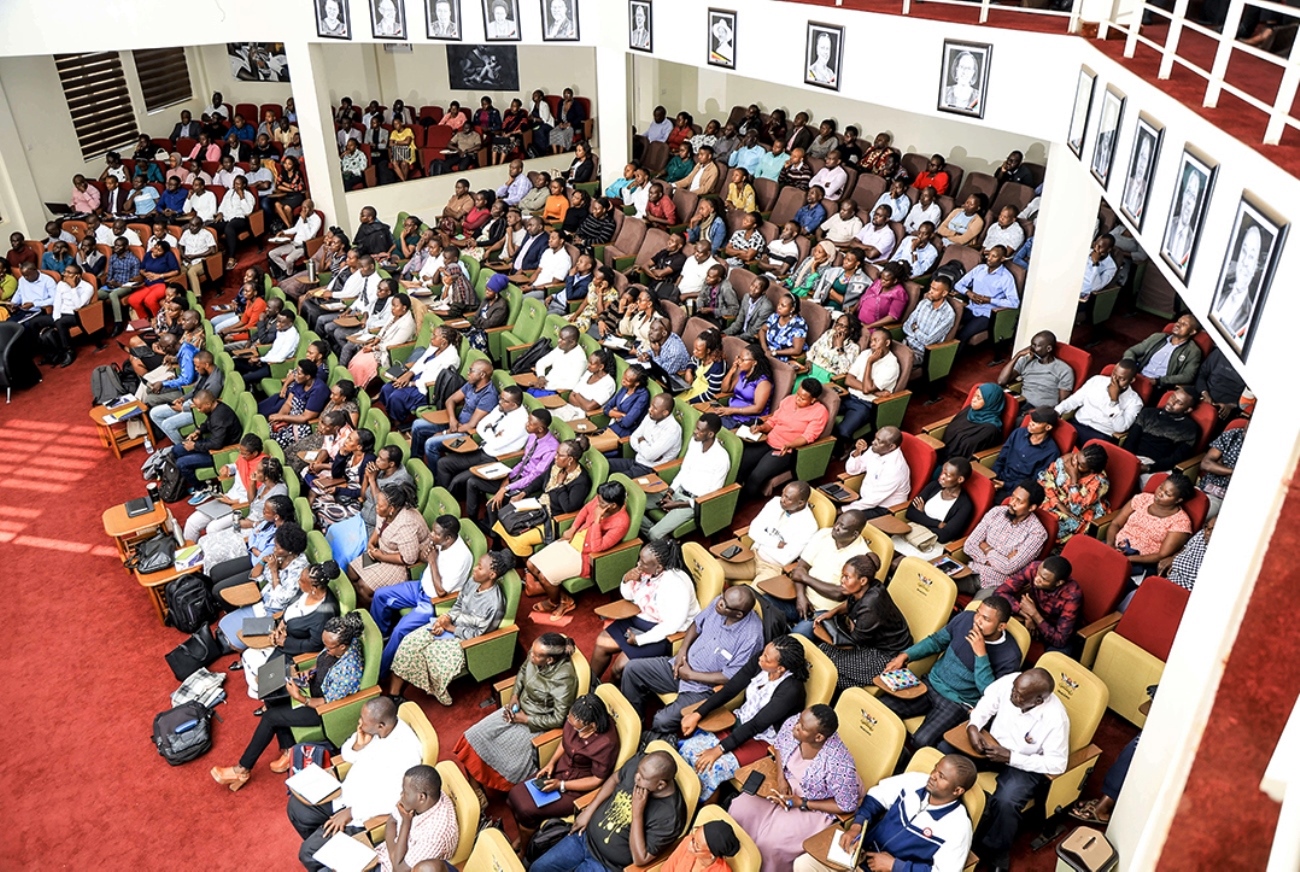
The Makerere University School of Public Health (MakSPH) is excited to invite researchers, professionals, and students to be part of an inspiring and impactful event!
Venue: School of Public Health Auditorium, Makerere University Main Campus
Dates: August 7–8, 2025
Theme: “Understanding the burden and impact of injuries in East Africa to improve Emergency Care preparedness, mitigation, and response.”
Submit Your Abstracts Now!
Join the conversation that drives change in trauma and emergency care across East Africa. Share your research, innovations, and insights that can shape the future of healthcare response in our region.
Submission Deadline: July 10, 2025
Submit here: triadcommunications@musph.ac.ug
Register to Attend: https://aapug.org/east-african-symposium-and-expo-on-trauma-injury-disability-and-emergency-care-2025/
Together, let’s drive change and improve lives through research and collaboration. Don’t miss this opportunity to make a difference!
Trending
-

 General4 days ago
General4 days agoMature Age Scheme Exam Results for 2025/2026
-

 General1 week ago
General1 week agoFreshers’ Joining Instructions 2025/2026
-

 General1 week ago
General1 week agoMastercard Foundation Board pays its inaugural visit to Makerere University
-

 General1 week ago
General1 week agoUVCF Makes Case for HEAC Programme
-
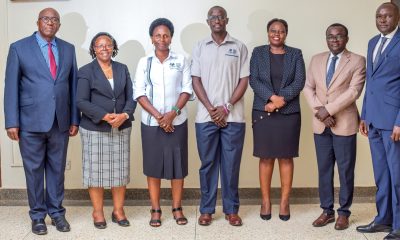
 General2 weeks ago
General2 weeks agoCall For Expression of Interest: MURBS MIS Requirements Gathering
